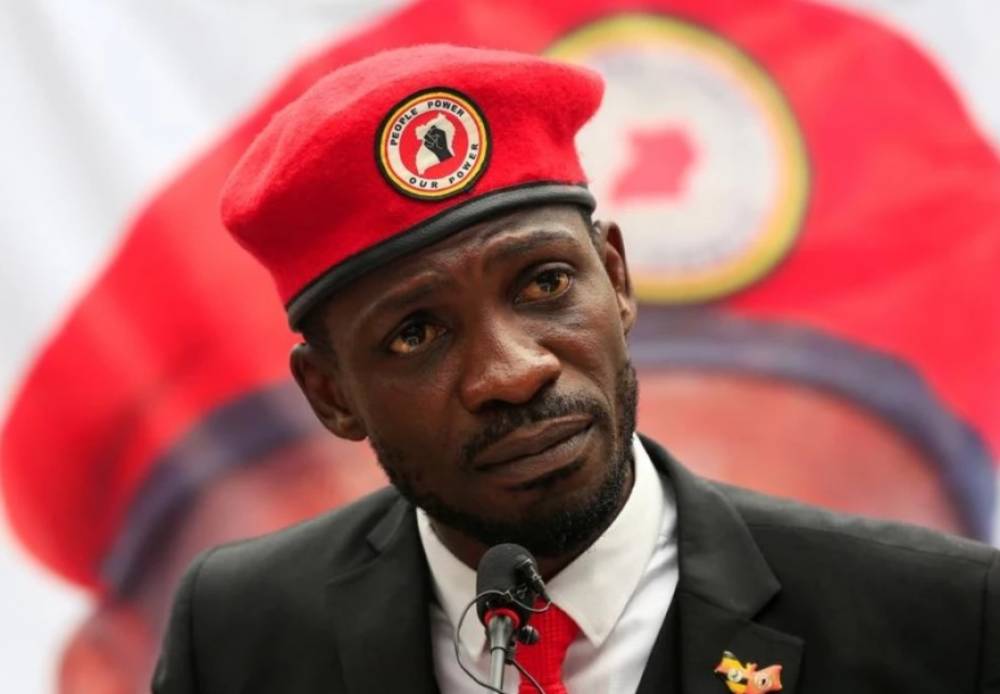A journal for storytelling, arguments, and discovery through tangential conversations.
Thursday, June 13, 2024
|
Olajide Salawu
In a new documentary film on his life and politics, Robert Kyagulanyi Ssentamu is in a Toyota SUV when the camera pans closely to his face revealing his lanky form even in his cardigan. His red beret — the veritable and allegorical element of his political struggle — hangs on his knee in the brief foreshadow. Along with other comrades of his political persuasion, they are gearing up for a campaign against one of Africa’s last dictators. Shortly after this scene, Ssentamu asks if his comrades are ready for the outing in solidarity, and a hymn follows. They all chorus their ache of their country’s political hostage and tempest but register their assurance of victory in the end. It is an overture that summarizes the intention of the film: to familiarize the audience with the massive energy Ssentamu has gained from his people. We see him lead an entourage of motorcyclists through a market alley and standing high with his red beret as an unflagging radical raising his fist in struggle. However, we would soon learn that opposition comes at a price; people are seen seeking safety in every corner as sporadic shootings heighten the tempo and pathos of the film. Ssentamu, known as Bobi Wine, his stage moniker as a musician, has become an African symbol of liberationism. And beyond his music, has been in the fierce field of Ugandan politics. In the last decade, Wine’s personhood has edged out as a critic, ideologue, and a credible antagonist of Yoweri Museveni.

Thursday, January 13, 2022
|
Olajide Salawu
On both the Anglophone and the Francophone sides, Africa was on the podium of literary delight in 2021. It is true as in the words of Samira Sawlani that African writers took the world by storm. Boubacar Boris Diop won the 2022 Neustadt International Prize for Literature for his book titled, Murambi: The Book of Bones, which explores the 1994 Rwandan Genocide, . It is the fifth decade of the prize and Diop is among the few Africans who have won the prestigious award organized by World Literature Today of the University of Oklahoma. The Ghanaian writer, Meshack Asare, also was a recipient of the Children’s Literature category in 2015. Neustadt International Prize for Literature is considered one of the most prestigious awards only in proximity to the Nobel Prize, amounting to $50,000.00. More than the visibility benefits, this award would position Diop not only in the African literary market more, but also across uncharted territories where his works have not been read or studied.

Thursday, September 23, 2021
|
Olajide Salawu
Dan Hicks has been at the center of conversations on the violent history of colonial museums and on how cultural objects pillaged from the Benin Kingdom can be returned to their original homes. His recent scholarship has focused on the colonial histories of cultural objects, work which has intersected with recent global campaigns against racism, continued imperialism in the Middle East, and ongoing ecological disasters. His two most recent books, The Brutish Museums: The Benin Bronzes, Colonial Violence and Cultural Restitution (paperback 2021) and A Cultural History of Objects (2020) are both diligent interventions that investigate the underbelly of colonialism and the foundations of Western cultural institutions, with a particular focus on museums where artefacts and valuables that have been expropriated from other regions of the world are displayed for visitors.
